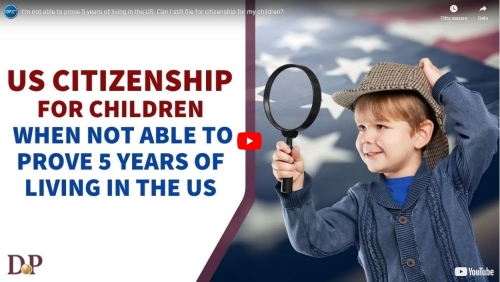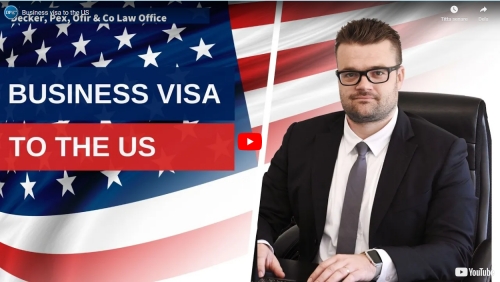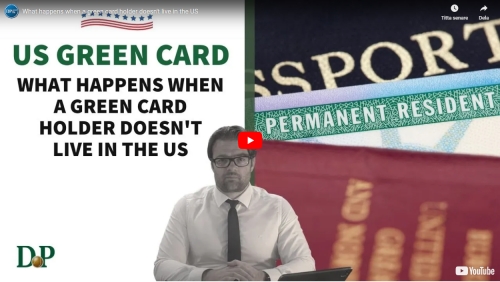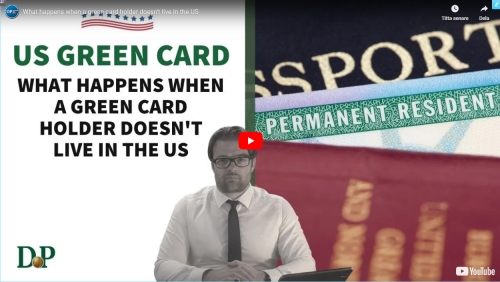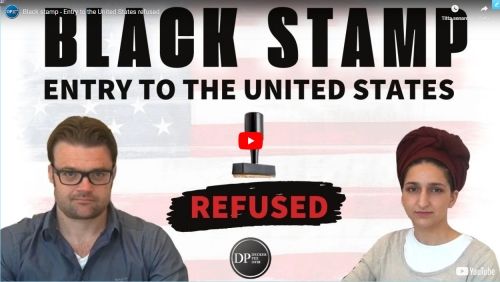What is the E-1 Treaty Trader Visa?
The E-1 visa provides citizens of a “treaty country” (see below) with an entry permit to the US in order to engage in international trade for the company they are employed by, and applies both for business owners (“treaty traders”) and key employees of such businesses. The E-1 status is applied for by the company along with an application for the first employee at the US Embassy. The status may be given to companies or organizations where they are owned at least 50% by persons who hold citizenship of the treaty country.
Which countries are considered treaty countries?
A treaty country is a country with which the US has signed and maintains a treaty of commerce and navigation, or a qualifying international agreement, or which has been considered as a qualifying country by US legislation. The updated list of treaty countries, and their classifications, is published on US department of State website. Israel maintains its E-1 visa qualification due to a treaty with the US that entered into force in 1954.
What are the requirements to obtain an E-1 Visa for Treaty Traders?
Other than being a national of a treaty country, here are some of the other requirements:
- Substantial Trade: The trade conducted between the treaty country and the US must be sufficient to ensure a continuous flow of international trade items between the two countries, involving a significant value or volume of goods, services, or technology. There is no specific requirement for a certain value or volume of each transaction, although the US authorities give greater importance to the number of transactions over their total worth. The trade may include physical movement of goods or non-physical services, for example: international banking, insurance, transportation, tourism, technology and its transfer and news-gathering activities.
- Qualifying Enterprise: The applicant must either own the business engaged in substantial trade or be employed in an executive, supervisory, or essential capacity in the qualifying enterprise (see below). The enterprise has to be an entity of the treaty country.
- Principal Trade: The applicant must be able to prove that the majority of the trade they conduct is between the treaty country of the treaty trader’s nationality and the US (i.e. at least 50%).
- No intention to settle in the US: Since the E-1 Visa in a non-immigrant visa, the applicant should be able to prove to US authorities their intentions to depart the country when their Treaty Trader Visa expires or is terminated.

Who may be considered a key employee for the purpose of receiving Derivative E-1 Treaty Trader Visa?
Under the E-1 visa, employees of the treaty trader may be eligible to accompany or join the principal E-1 visa holder in the United States. These employees must meet certain criteria to qualify for a Derivative E-1 Visa which are as follows:
- Same Nationality: The employee must be of the same nationality as the employer and the treaty country.
- Meet the definition of “employee”. The USCIS – United States Citizenship and Immigration Services – will evaluate whether the applicant meets the definition of an employee as defined in US immigration laws and regulations.
- Essential Employee: The employee must be engaging in duties of executive or supervisory nature, or if employed in a lesser position – must be able to show “special qualifications”, which are essential to the efficient operation of the qualifying trade or enterprise. USCIS might check the following traits, in order to decide if an employee meets “special qualifications”:
- The employee has proven expertise in their area of operations.
- Whether others possess the employee’s specific skills.
- The salary that the special qualifications can command.
- Whether the skills and qualifications are readily available in the United States.
What is the maximum period of stay under E-1 Visa?
E-1 visa holders are initially granted a maximum period of stay of up to 52 months if they are Israeli nationals. However, extensions of stay can be requested in increments of up to 52 months each. An E-1 visa holder who travels abroad will generally be granted an automatic 2 year stay when returning to the United States. There is no specific limit on the number of extensions that can be granted, as long as the individual continues to meet the requirements for E-1 Treaty Trader Visa.
Do family members of E-1 Treaty Trader Visa holders have to also be from a treaty country?
No, the E-1 visa allows the principal applicant to bring their spouse and unmarried children (under the age of 21) to the United States as dependents, regardless of whether they are from a treaty country or not. Moreover, the spouses of an E-1 visa holder are generally allowed to seek employment in the U.S. without restrictions. The spouses employment authorization is dependent on the principal applicant maintaining valid E-1 status.
What are the main differences between the E-1 Treaty Trader Visa and the E-2 Treaty Investor Visa?
While the E-1 Treaty Trader Visa focuses on trade (as mentioned above, the trade must be continuous and substantial, involving a considerable flow of international trade between the two countries) – the E-2 Treaty Investor Visa emphasizes investment in a US business: the investment must be substantial and sufficient enough to get the business up and running. In addition to the investment, the applicant for an E-2 Visa must submit an extensive business plan for the next five years. The E-2 Treaty Investor Visa is available to Israeli citizens since 2019. For further details, please see our article on E-2 Visa Investment Requirements.
Start your application for an E-1 Treaty Trader Visa by contacting a lawyer with expertise and experience
Since so many people are interested in relocating to the US, the US authorities inspect each request very carefully. Therefore, it is highly recommended to use the services of a skilled lawyer with experience in the field, who can represent you before the federal immigration authorities. Decker, Pex, Levi, Rosenberg, a reputable law firm with branches in Jerusalem and Tel Aviv, specializes in US immigration laws and has a dedicated US immigration team to assist you with your E-1 Treaty Trader visa application. We will be happy to be at your service and assist you in applying for the visa. You are more than welcome to contact us using the phone number or email address listed below.
The article was written in collaboration with attorney Adam Jonsson.





